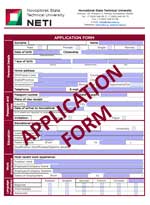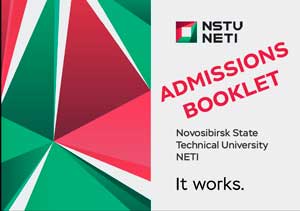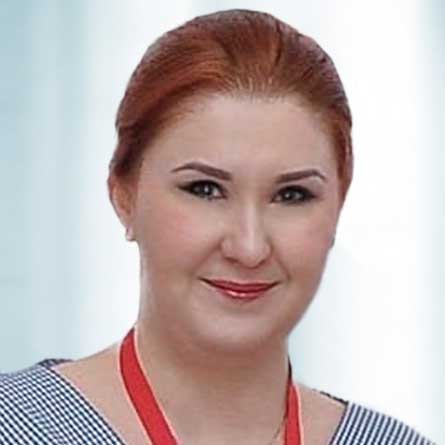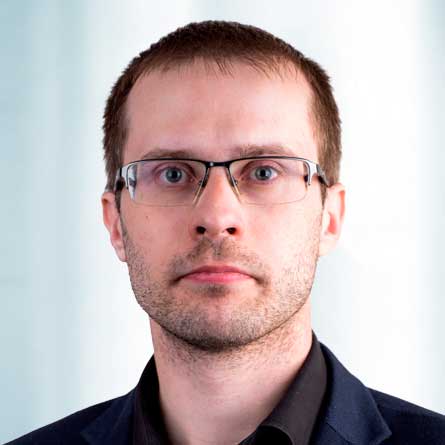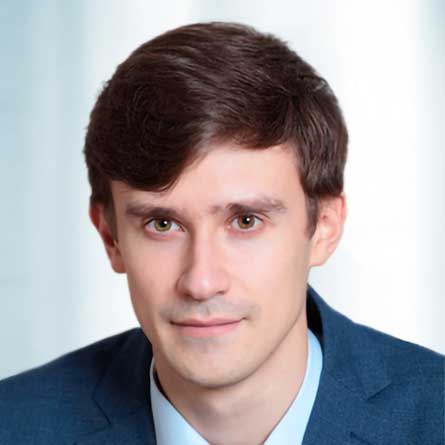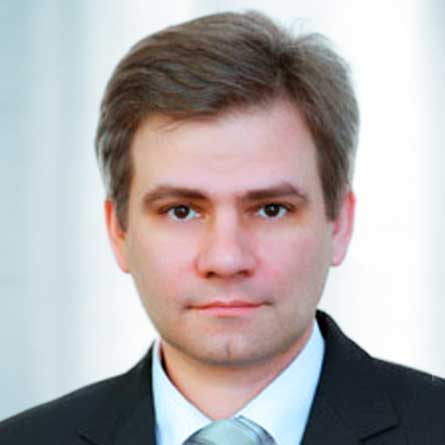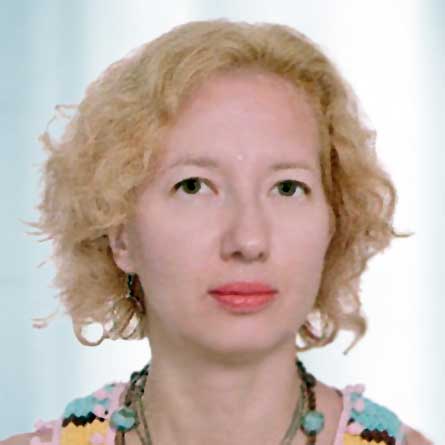Tuition fee information for all majors
Power Engineering
Duration: 2 years
Start: September 1
Admission: open
Language : English
The Master's program combines both the fundamental principles of design, control and automation in electric power systems, and modern information technologies based on mathematical modeling, computer simulation and data mining.
During the first year of training, you will broaden your knowledge in mathematical modeling, design and management in the electric power industry, as well as begin to study special disciplines. You will be immediately attached to the research supervisor and begin to develop the structure of your master's thesis.
The second year of training is devoted to the study of special disciplines, as well as the preparation of a master's thesis in one of the research groups under your research supervisor guidance:
- machine learning in forecasting tasks
- intelligent equipment diagnostics systems
- planning and management of hydroelectric power plant modes
- modeling and optimization of power supply systems
- relay protection and automation in electric power systems
You will obtain profound methodology knowledge and research experience in the chosen field. You will gain fundamental knowledge of the design principles and management of electric power systems. You will gain experience in research of electric power facilities using modern software systems and methods of data processing as well as intellectual analysis. You will be able to participate in interdisciplinary research and technical work.
- Bachelor's degree (electrical power systems engineering, electrical engineering).
- Minimum level of English proficiency – B2
| Course: Electrical Power Systems Control | |
| Professor | Candidate of Sciences (Engineering), Associate Professor, Automated Electric Power Systems Department, NSTU Armeev D. V. |
| Recommended semester | 3 |
| Requirements | Basic knowledge about the structure of electric power systems and networks, basic equipment and automatic control devices. |
| Form of Teaching | Lectures / practical work / independent work |
| ECTS | 3 |
| Examination requirements | Test |
| Learning Outcomes, Qualification and Competence Aims | A one-semester course provides in-depth knowledge of the principles and methods of managing the electric power systems modes, especially in terms of static and dynamic stability as well as frequency control and power overflows. An additional feature of the course is the study of the described content application not only to large traditional energy systems, but also to hybrid systems with distributed generation, renewables, energy storage and managed technologies such as Smart Grids, Internet of Energy and other active energy complexes described as promising areas of research and development in the Energy.net road map. |
| Course: System Analysis in Electric Power Industry | |
| Professor | Candidate of Sciences (Engineering), Associate Professor, Department of Enterprises Power Supply Systems, NSTU Matrenin P. V. |
| Recommended semester | 3 |
| Requirements | Basic knowledge in electrical engineering, mathematical modeling, and computer data processing |
| Form of Teaching | Lectures / practical work / independent work |
| ECTS | 3 |
| Examination requirements | Test |
| Learning Outcomes, Qualification and Competence Aims | System analysis in the electric power industry is a one-semester course that provides in-depth knowledge of the principles and methods of system analysis based on examples from the electric power industry. It covers the theory of systems and the general methodology of system analysis as well as the decision-making process under uncertainty conditions using computer simulation and data mining |
| Course: Data Processing in the Power Industry | |
| Professor | Candidate of Sciences (Engineering), Associate Professor, Department of Enterprises Power Supply Systems, NSTU Matrenin P. V. |
| Recommended semester | 1 |
| Requirements | Basic knowledge in mathematical modeling, computer data processing, and programming in high-level languages |
| Form of Teaching | Lectures / practical work / independent work |
| ECTS | 4 |
| Examination requirements | Exam |
| Learning Outcomes, Qualification and Competence Aims | Data processing in the electric power industry is a one-semester course that provides knowledge and practical skills in digital data processing in the electric power industry in Python 3 using the Pandas, NumPy, and Matblotlib libraries. The acquired knowledge and skills are necessary both for research and the subsequent courses related to computer simulation of electric power objects, forecasting and data mining. |
| Course: Operating Modes Planning of Hydroelectric Power Plant Cascades | |
| Professor | Doctor of Sciences (Engineering), Head of Electric Power Plants Department, NSTU Rusina A. G. |
| Recommended semester | 3 |
| Requirements | Basic knowledge of hydropower industry, mathematical modeling of physical processes in the energy sector |
| Form of Teaching | Lectures / practical work / independent work |
| ECTS | 4 |
| Examination requirements | Exam |
| Learning Outcomes, Qualification and Competence Aims | Planning modes of operation of hydroelectric power cascades is a one-semester course that provides knowledge about the general principles and methods of planning and simulation of operation modes of hydroelectric power cascades taking into account the main parameters of the cascade reservoirs, their types of control and coupling equations within the selected control criterion. |
| Course: Special Issues of Electric Power Supply | |
| Professor | Candidate of Sciences (Engineering), Associate Professor, Department of Enterprises Power Supply Systems, NSTU Myatezh T. V. |
| Recommended semester | 2 |
| Requirements | Knowledge of the electrical engineering and electrodynamics theoretical foundations. |
| Form of Teaching | Lectures / practical work / independent work |
| ECTS | 4 |
| Examination requirements | Exam |
| Learning Outcomes, Qualification and Competence Aims | Special energy supply issues is a one-semester course that provides knowledge and practical skills in designing and optimizing electricity and heat supply systems for industrial buildings and residential premises, taking into account the system of electricity quality indicators, skills in analyzing the impact of various electricity parameters on the quality of electricity supply to consumers and minimizing the negative effects of electricity parameters deviations on the quality of electricity supply. |
| № | Discipline | Semester | ECTS | Assessment |
|---|---|---|---|---|
| Required | 8 | |||
| 1 | Computer, Networks and Information Technologies | 1 | 3 | Test |
| 2 | Foreign Language | 1 2 | 4 | Exam |
| 3 | Modern Problems of Electric Power and Electrical Engineering | 1 | 3 | Test |
| 4 | Management of Innovations | 1 | 2 | Test |
| 5 | Research and Methodology Workshop | 2 | 2 | Test |
| 6 | Educational Practice: Practice of Obtaining Primary Skills while Working with Software in the Context of Professional Sphere | 1 | 3 | Test |
| 7 | Educational Practice: Practice of Obtaining Primary Skills in Research Work | 1 | 3 | Test |
| 8 | Preparation for and Taking the State Examination | 4 | 6 | Test |
| Variance | 21 | |||
| 9 | Electrical Power Systems Control | 3 | 3 | Test |
| 10 | System Analysis in Electric Power Industry | 3 | 3 | Test |
| 11 | Project Management in Electric Power Industry | 1 | 2 | Test |
| 12 | Mathematical Modeling of Processes in Power Industry | 1 | 4 | Exam |
| 13 | Mode-Setting and Emergency Control Automatics | 2 | 4 | Exam |
| 14 | Data Processing in the Power Industry | 1 | 4 | Exam |
| 15 | Machine Learning Techniques in tasks of Forecasting in Electric Power Industry | 2 | 3 | Exam |
| 16 | Operating Modes Planning of Hydroelectric Power Plant Cascades | 3 | 4 | Exam |
| 17 | Special Issues of Electric Power Supply | 2 | 4 | Exam |
| 18 | Emergency Control Automatics | 2 | 3 | Test |
| 19 | Emergency Control in Power Systems | 2 | 3 | Test |
| 20 | Technical Facilities of Dispatching and Technological Management | 3 | 4 | Exam |
| 21 | Operational Dispatching Management | 3 | 4 | Exam |
| 22 | Modern Automation Facilities | 3 | 4 | Test |
| 23 | Modern Relay Protection Facilities | 3 | 4 | Test |
| 24 | Application Software Data Processing Packages in Electric Power Industry | 1 | 4 | Test |
| 25 | Application Software Packages for Engineering Calculations | 1 | 4 | Test |
| 26 | Industrial Practice: Project Practice | 2 | 12 | Test |
| 27 | Industrial Internship: Research | 3 | 12 | Test |
| 28 | Pre-Graduation Training: Research Activity | 4 | 24 | Test |
| 29 | Philosophy | 2 | 4 | Test |
The program involves a further research career in the field of electric power engineering. Employment organizations: academic institutes of the Russian Academy of Sciences; foreign scientific organizations; design organizations; enterprises of the electric power industry; electric power departments of industrial and mining enterprises.
Graduates can successfully continue their postgraduate studies at the world's leading universities. Employers examples: Institute of Automation and Electrometry SB RAS, Novosibirsk; Melentyev Institute of Energy Systems SB RAS, Irkutsk; Gazprom; Inter RAO Group; ABB; Schneider Electric; SIEMENS; JSC "SO UES", Moscow and branches in the regions of Russia; PJSC "RusHydro", branches and subsidiaries in the regions of Russia; PJSC "Rosseti", Moscow and subsidiaries in the regions of Russia; NPO "ELSIB", PJSC; LLC "Siberian Generating Company"; JSC "RES"; JSC "Novosibirsk Energosbyt", Novosibirsk; LLC "Bolid", Novosibirsk; LLC "INPES", Novosibirsk; LLC "Tornado Modular systems", Novosibirsk; LLC GC IEK

Total 120 CP
- Admission starts on June 20
- Admission stops on July 10
- The documents are sent to the university in electronic form through the Enrolee NSTU Personal Account. When submitting an application for admission in electronic form, the documents attached to it are submitted (sent) to the NSTU admission committee in the form of their electronic images (paper documents converted into electronic form by scanning or photographing with the provision of machine-readable recognition of its details)
- Entrance tests to the master's program are in the form of an interdisciplinary online test. The disciplines to be tested are Pedagogy, Psychology and English for Specific Purposes in Foreign Language Teaching.
